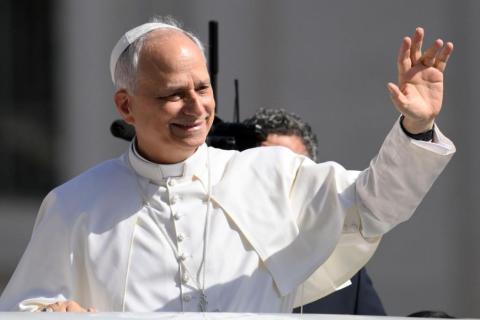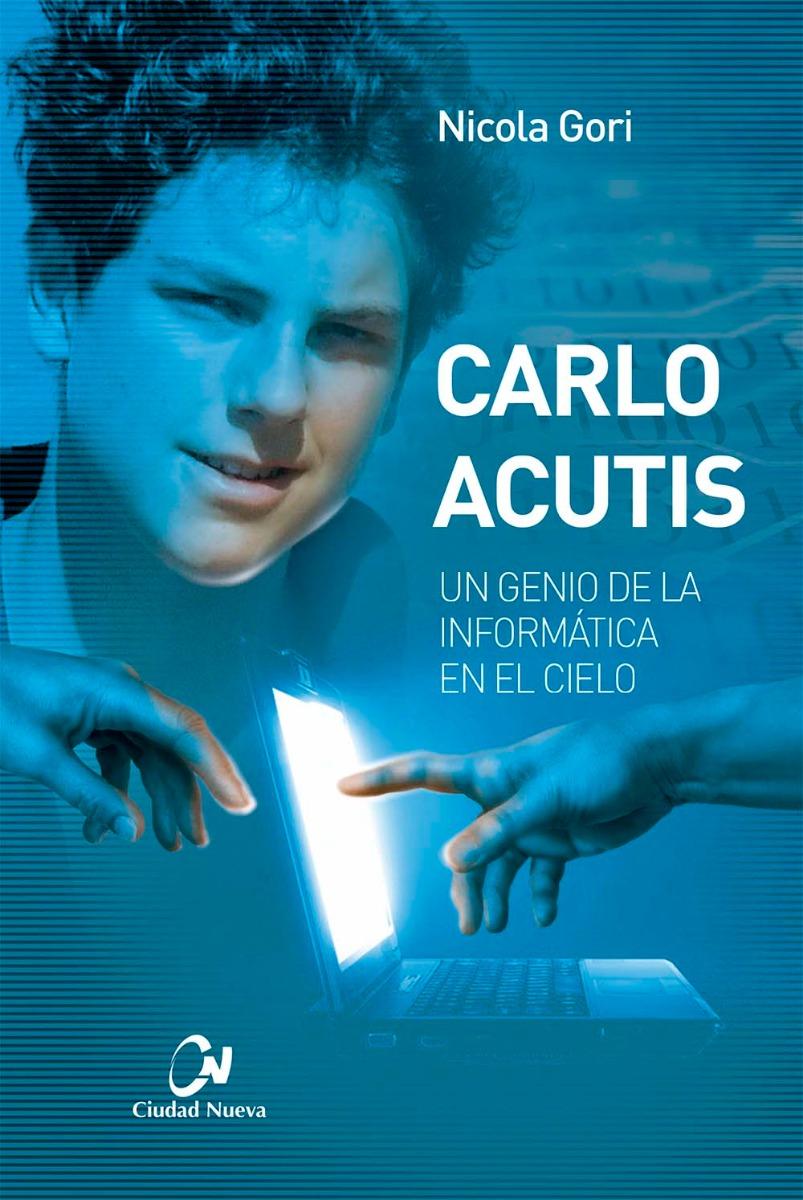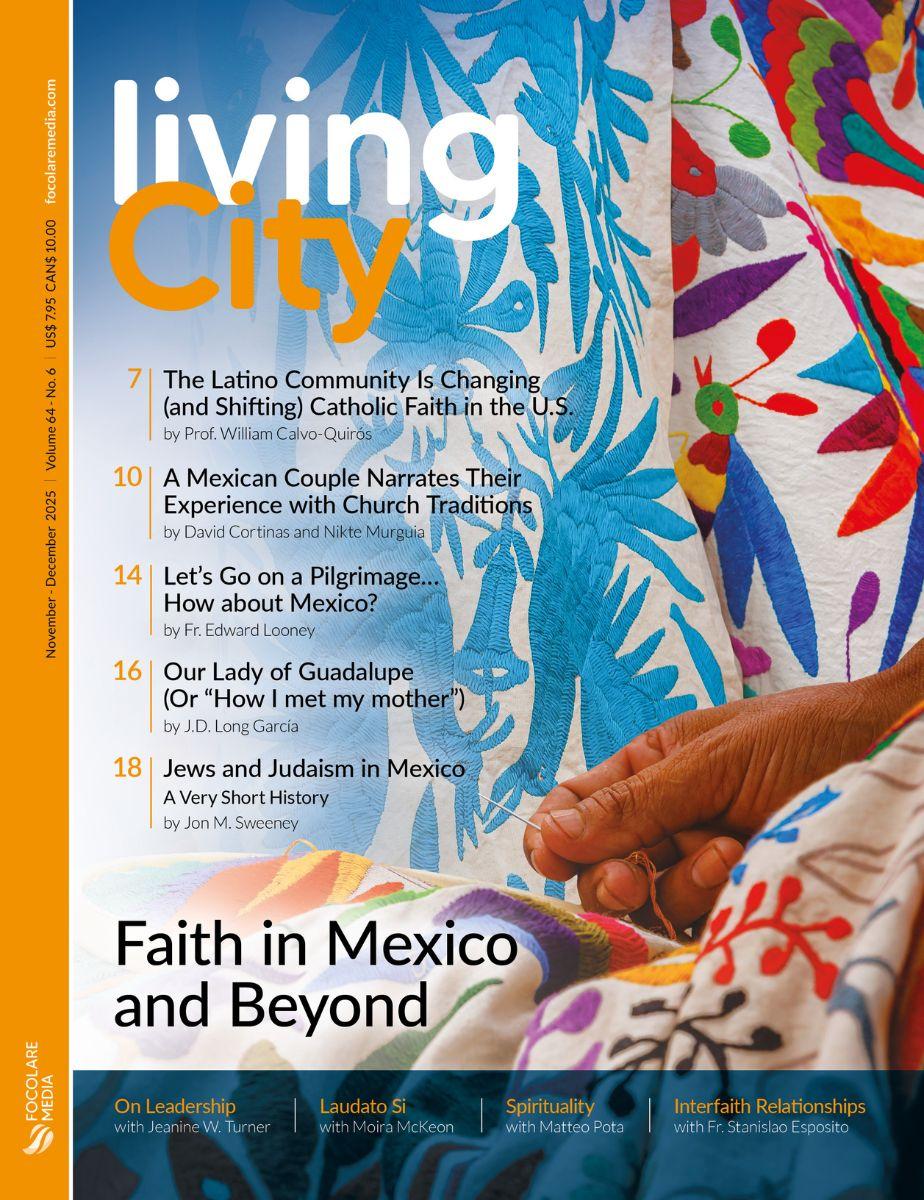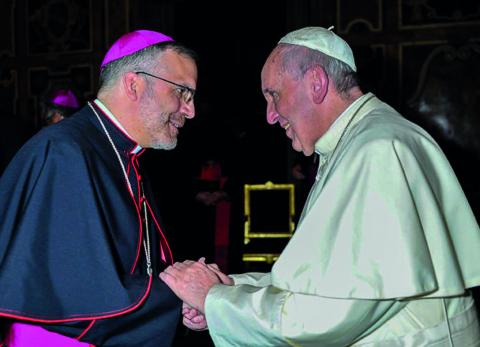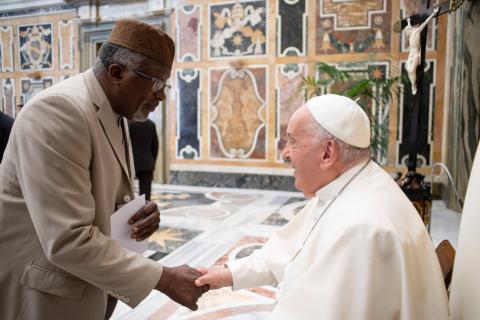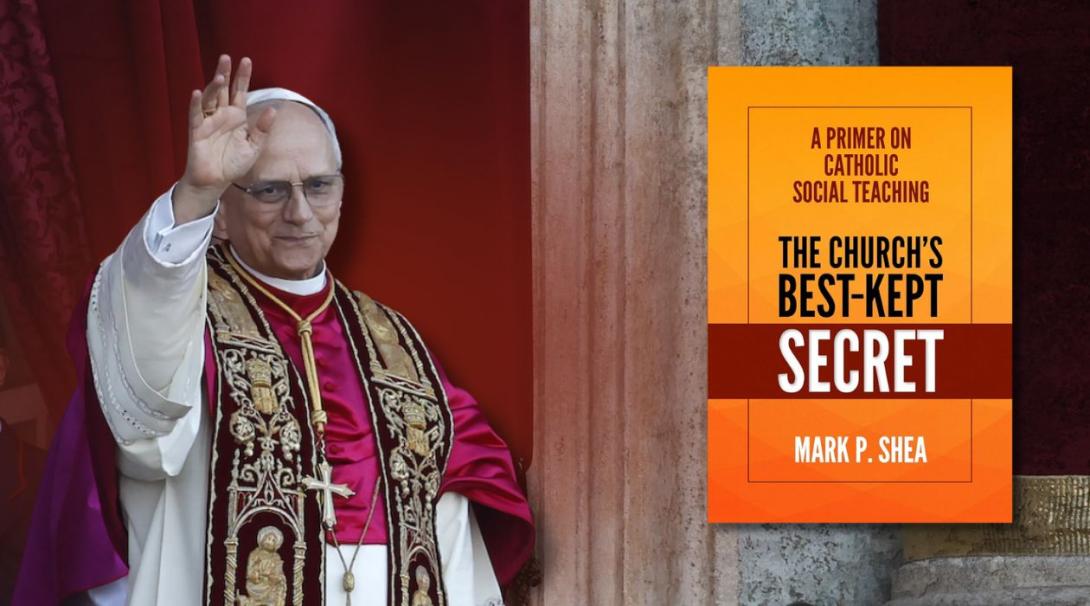
I once spoke about Catholic Social Teaching at a parish. On one side of the room sat the parish’s Pro-life group. On the other side sat the parish’s Peace and Justice group. Neither saw themselves as having anything in common with the other. Yet the whole point of my talk was that in the mind of the Church, which is the mind of Christ (see 1 Cor. 2:16), both are part of the same Body, engaged in the same salvific mission to the world.
Thinking Beyond the Categories of the World
Some think of Catholic moral teaching in terms of the private and personal (and, for the most part, sexual). So for many, the Church should focus on so-called “Non-Negotiable teaching” (first and foremost, abortion and, to a lesser degree, euthanasia). Those with such a perspective tend to place on a lower rung Catholic teaching about more public issues such as taxation, workers’ rights, poverty, immigration, politics, public spending, climate change, technology, health care, war, torture, gun violence, racism, or the death penalty. For them such issues are 1) a distraction from the so-called “Non-Negotiables”, 2) politically “liberal,” and 3) subject to “prudential judgment,” a term they commonly understand to mean “doing as we like.”
Conversely, others think the Church should focus on these very public issues affecting billions of people around the globe. To them, the primary mission of the gospel is to create a just society in which the stranger, the orphan, and the widow are cared for and just structures are established to shield the vulnerable from the rich, powerful, and privileged predator. These folks sometimes regard the Church’s teaching on our sex lives as a distraction from these issues.
Each group tends to like some aspects of the gospel, but each also tends to think there are areas where the Church should mind her own business. And (mark this) each therefore tends to evaluate the Church’s Social Teaching in light of their political and cultural priorities rather than evaluating their political and cultural priorities in light of the Church’s teaching. Consequently, they wind up on opposite sides of the room, darting suspicious glances at each other. Worse, they dart suspicious glances at the riches of the Tradition itself.
The trouble, very simply, is that a gaggle of warring voices in our culture assails us, urging us to think not with the mind of Jesus Christ, but with our favorite news vendor, or political party, or pundit, or social media mini-pope, or circle of peers. The result is that actual Catholic teaching on how to order our common life remains the Church’s best-kept secret.
That’s not because the Church hides it. It is there in plain view in the Compendium of the Social Doctrine of the Church—and more especially in the words of Jesus Christ himself. Rather, it is nearly invisible because the gospel is eternally at cross purposes with all those voices in our culture that are so much louder than the Church. So we are taught by our culture to ask, “Is it political, progressive, conservative, spiritual, left, right, modern, ancient?” but not “Is it in accord with what Jesus taught?” The Church’s Social Teaching is regarded with tremendous confusion, not because it is confusing but because we are confused.
With the election, first of Pope Francis and now even more so with the dawn of the pontificate of Pope Leo XIV, the Catholic Church’s rich tradition of Social Teaching is taking center stage in the thought and conversation of the entire world as never before.
Thinking with the Mind of Christ
So who is right? Should we care more about private, personal “pelvic” morality or primarily focus on what is popularly called “social justice” issues like poverty, racism, crime, and so forth? The answer of the Christian tradition is “Yes”.
Our Tradition makes the startling claim that Jesus has revealed the way to his tripartite gift of healing for ourselves, love and justice among all people, and the ultimate and eternal happiness that we all seek. To find it though, we must “have this mind among yourselves, which was in Christ Jesus” (Philippians 2:5) since God reminds us “My thoughts are not your thoughts,/neither are your ways my ways, says the Lord” (Isaiah 55:8).
Four Pillars
The good news is that Jesus has not left us on our own to try to figure out that Tradition. Rather, he has poured out gifts on his Church to help us both know and do his will for our neighbor in love. As he told the apostles, “He who hears you hears me” (Lk. 10:16).
What the Church teaches about how to love our neighbor comes to us through two millennia of apostles, prophets, evangelists, pastors, teachers, saints, philosophers, thinkers, and reformers pondering the implications of Jesus’ teaching and, what is more, living it out.
Catholic Social Teaching can be pictured as a throne sitting on four pillars. Just as a throne would tip over if each leg differed in length, so these pillars are equally important and equally emphasized. Or, if you prefer, they are like four notes forming a single chord:
- The Dignity of the Human Person
- The Common Good
- Subsidiarity
- Solidarity
With the election, first of Pope Francis and now even more so with the dawn of the pontificate of Pope Leo XIV, the Catholic Church’s rich tradition of Social Teaching is taking center stage in the thought and conversation of the entire world as never before. This will particularly be the case since the new Pope explained that his choice of a regnal name deliberately harked back to his great predecessor, Leo XIII, who founded the entire tradition of Catholic Social Teaching a little over a century ago with the publication of his encyclical, Rerum Novarum.
In an era when the world must deal with everything from climate change to AI to global poverty to the threat of authoritarianism to innovative assaults on human life and dignity, it is therefore more pressing and essential than ever that we learn, understand, and put into practice the life-giving and liberating implications of the gospel for the ordering of our common life. That is what The Church’s Best-Kept Secret: A Primer on Catholic Social Teaching is all about.
This is a revised excerpt from The Church’s Best-Kept Secret: A Primer on Catholic Social Teaching, by Mark P. Shea. Published by New City Press, 2020. Used by permission.
If you enjoyed this article, you might like...







